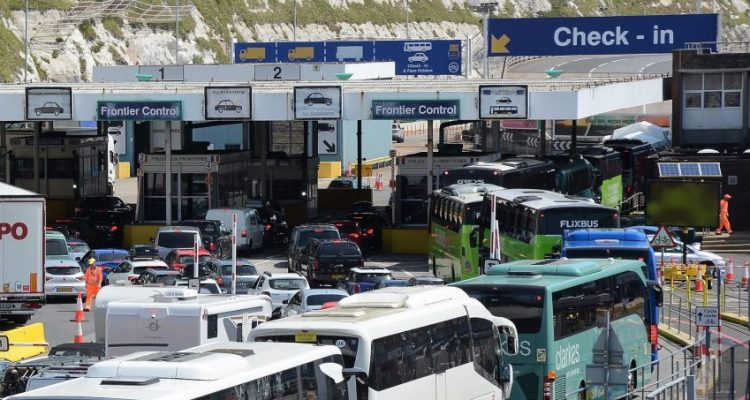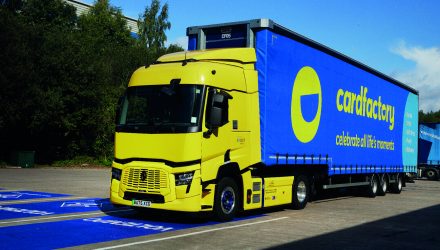This weekend (Sunday, 12 October) sees the implementation of the EU’s long-awaited Entry/Exit System (EES). Business group Logistics UK says it is essential the EU sticks to its promise of a phased roll out, to ensure there are no delays and disruption for freight traffic at the Short Straits crossings between the UK and France.
Under EES, the EU’s new border processes will automatically register non-EU citizens as they cross the borders of the 29 European countries in the Schengen area. On the first visit, travellers will need to create a digital record by submitting biometric details. The EES only applies within the Schengen area which means the Republic of Ireland and Cyprus are not impacted by the new requirements and EES is not applicable when travelling to either of these countries.
“It is essential that the new border systems are implemented gradually to keep traffic flowing and trade moving,” comments Logistics UK Policy Manager – Trade, Customs and Borders Josh Fenton. “Almost 60% of UK-EU trade in goods travels via the Short Straits, which equates to thousands of vehicles every day. The additional time required for passengers to register biometric details when they leave the UK has the potential to cause knock on delays for freight traffic and disrupt the UK’s supply chain. It is more than just an inconvenience: our analysis shows that even a 90 minute delay for the 3.35 million HGVs that pass through the Short Straits would cost the economy £400 million per year.*
“The logistics sector has been preparing for the changes for some time, as EES was originally planned to be implemented in 2024. The delay to its introduction, that Logistics UK was instrumental in securing, was necessary and means the new processes can be introduced with minimum disruption – as long as they are phased in as expected. However, disruption is inevitable as travellers register their details on the system, so we are urging member businesses moving goods to the continent to allow additional journey time. To prevent any disruption in the future, Logistics UK is calling on the UK Government to work with the French government to develop an app for so EES registration can be carried out remotely and away from the border.”
As Fenton continues, EES has also thrown up an additional consideration for transport operators – automatic enforcement of the requirement that non-EU citizens are restricted to spending 90 days in previous 180 in the EU:
“The new EES system will automatically log time spent within the Schengen area, so it is essential that drivers comply with the current legal requirement of only spending 90 of the previous 180 days in the Schengen area. It is important to remember that both personal travel and commercial work contribute to the 90 days – personal holidays count towards the total. As the new system will automatically detect overstayers, drivers and operators need to ensure they remain compliant.
“The current 90/180 day rule does not support smooth trade between the UK and EU and Logistics UK is calling for the UK government to seek an exemption from the EU for professional drivers. This will ensure they can continue to deliver the goods that businesses and consumers across Europe rely on that help drive growth. Until that happens, drivers must comply with the legislation to ensure there is no disruption to their operations.”






